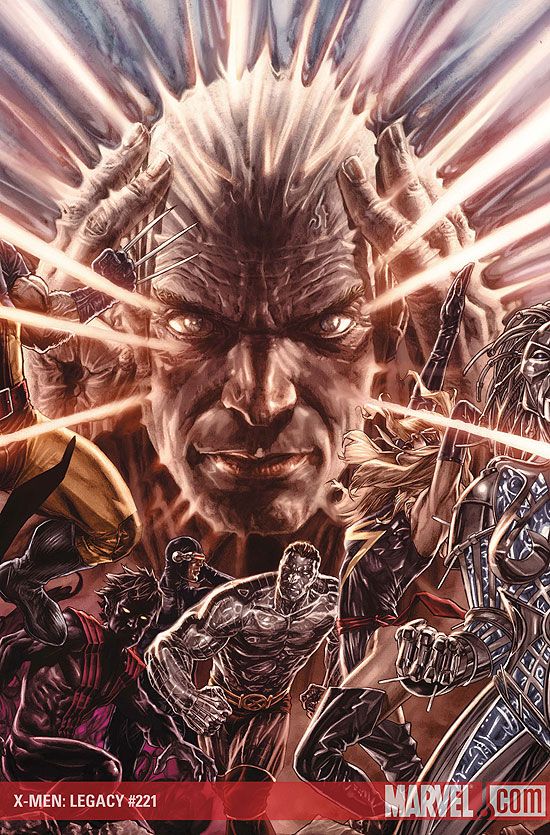"X-Men: Legacy" occupies a peculiar space in the Marvel landscape. With "Uncanny X-Men" as the core series of the X-Franchise, and a handful of spin-offs to contend with, "X-Men: Legacy" has been positioned as the nostalgia book. It's the one filled with allusions to past adventures. It's the one that's 10% moving forward and 90% looking back.
Mike Carey has found various ways to tell that kind of highlight-reel story, from bringing in Mr. Sinister to play with memories or, in this arc, showing physical manifestations of Rogue's fragmented psyche while simultaneously getting the now-sentient Danger Room to replay events from the past. No matter how he frames it, all Carey gets to do with this series is linger in the past. And that makes this series pretty useless.
Penciller Scot Eaton has talent and experience -- he's been in the comics industry for a while -- and though his work has never risen above the effectively competent, he can tell a clear superhero story. In "X-Men: Legacy" #221 he gets to draw late 1980s-era Sabretooth, Nimrod (the pink Sentinel), Rogue as half-Nightcrawler, half-Colossus, the assembled Marauders, Gambit climbing up a cliff, and so on. But it doesn't add up to a story. Or, it's not a story where anything happens other than, "hey, we're reliving past stories, in the present!" It's like being trapped in a bunch of reruns.
A single issue of this kind of story might be fine -- it might work as part of a larger, more forward-looking arc -- but the entire concept of "X-Men: Legacy" is all about wallowing in stories that have already been told. It's not "Ultimate Spider-Man" where familiar stories are retold with a new direction for a new audience. It's not even "Justice Society of America" where a fondness for the days of yore enhance the experience of the stories set in the present day. Instead, "X-Men: Legacy" is one sequence after another where characters talk about specific stories of the past or relive them in various ways. With Carey's extensive "Lucifer" experience, maybe he'll pull back the curtain a few months from now and reveal that this repetitive, stuck-in-reverse series is a particular kind of Hell. A Hell in which these characters cannot move forward, cannot stop reliving the past.
Carey and Eaton are better than this series gives them an opportunity to be, and even if this particular issue isn't painful to read, it's utterly insubstantial, like the figments of Rogue's imagination.

